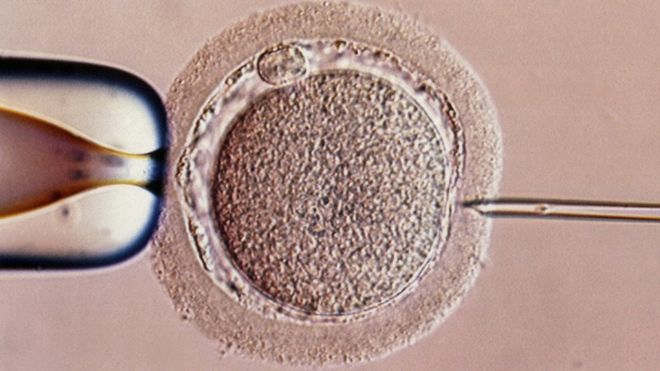A baby boy has been born in Greece as the result of an experimental form of in-vitro fertilization that uses an egg from the mother, sperm from the father, and another egg from a donor woman. The mitochondria–the small compartments inside almost every cell of the body that convert food to energy– from one donor woman’s egg are transferred into the mother’s egg.

This technique was originally developed to help families affected by deadly mitochondrial disease which can be passed from mother to baby. But some fertility doctors believe the technology could increase the odds of IVF too, although that claim has not been proven. These two different uses– infertility and disease prevention — are arguably ethically different.
Tim Child, from the University of Oxford and the medical director of The Fertility Partnership, said: “I’m concerned that there’s no proven need for the patient to have her genetic material removed from her eggs and transferred into the eggs of a donor.“The risks of the technique aren’t entirely known, though may be considered acceptable if being used to treat mitochondrial disease, but not in this situation.
“The patient may have conceived even if a further standard IVF cycle had been used.”

